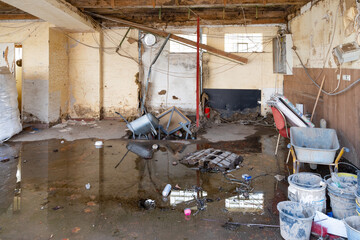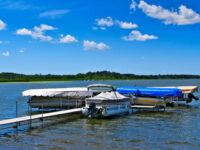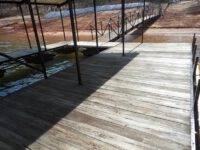Protect Your Home From Water Damage
Water Damage can lead to various losses. The various types of damage caused by water include rotting wood, mold growth, and bacteria. There are several types of insurance coverage for water damage. If you’re experiencing water damage in your home, learn how to ensure your homeowner’s insurance protects you.
 If your water bill has increased significantly recently, you probably leak into your plumbing system. If the water pressure has increased in a certain area, the pipes may have burst or developed a leak. Water damage can also lead to structural damage to a home or business. In addition to physical damage, water damage can cause health problems for you and your family.
If your water bill has increased significantly recently, you probably leak into your plumbing system. If the water pressure has increased in a certain area, the pipes may have burst or developed a leak. Water damage can also lead to structural damage to a home or business. In addition to physical damage, water damage can cause health problems for you and your family.
In addition to the types of water damage, the IICRC also has classifications based on the level of contamination in the water. Category 1 water does not pose a substantial threat to humans and is considered “clean water.” Generally, clean water flooding is treated by extracting standing water and using dehumidifiers to remove moisture from the air. Examples of clean water flooding include bathtub or sink overflows, refrigerator line breaks, and water from broken water supply lines.
Untreated water damage can present a variety of health risks, including the growth of mold, bacteria, fungi, and chemicals. These contaminants can cause respiratory issues and allergic reactions. They can also damage the structure of your home. Water damage repair is critical to protect you and your family from these dangers.
The most common health hazard associated with untreated water damage is mold. While some types of mold have beneficial properties, being exposed to large amounts of mold can cause various allergic reactions and respiratory diseases. In addition, untreated water damage can lead to an increased risk of developing respiratory infections, including asthma. Those with asthma or other respiratory conditions may be particularly at risk.
Water damage can lead to rapid mold and mildew growth if left untreated. The spores produced by these microorganisms can spread rapidly, making breathing difficult and potentially causing structural damage. Health experts have linked respiratory illnesses to increased mold growth, making it essential to clean up any mold infestation immediately. If you notice a mold infestation, call a mold remediation service immediately.
Even the smallest leak can cause extensive damage if not treated properly. Even a small leak or water spill can lead to mold growth, putting your home’s interior and occupants in danger. Untreated water damage can also reduce the value of your home. It is difficult to paint over discolored walls and ceilings and can negatively impact the property value. Potential buyers will offer you less money and may not consider your home if it has water damage.
Homeowner’s insurance coverage for water damage includes several different types of coverage. Dwelling coverage pays for repairs to the structure of your home and may also cover other structures, such as a detached garage or fence. In addition, personal property coverage pays for your belongings while your home is uninhabitable.
The most common form of homeowners insurance coverage for water damage covers the structure of your home’s structure and contents within. While this doesn’t cover floods or leaking pipes, it covers other forms of water damage, including floods caused by inadequate maintenance. If you’re facing a water damage incident, it’s important to contact your insurance company immediately to minimize the damages.
Another form of water damage covered by homeowners insurance is ground seepage, which happens when water seeps through a small hole in the ground. This is most common after heavy rain and causes the groundwater levels to rise, putting pressure on the foundation. Small cracks and holes in basement walls can also allow water to enter a home.
In such cases, you can add water seepage coverage to your policy.
Water damage can cause thousands of dollars in damage to a home. Homeowner’s insurance coverage for water damage varies from policy to policy. Some policies cover flood damage, while others only cover sudden internal water damage. Some policies also cover damage caused by neglect or lack of maintenance.
Even if your insurance company does cover water damage, filing a claim may not be a sure thing. You may be required to pay a deductible before getting a payout. However, if the damage is minor, you may not receive much of a payout after the deductible. Moreover, it may cost you more money to make repairs than to wait a few weeks for your insurance company to reimburse you.






